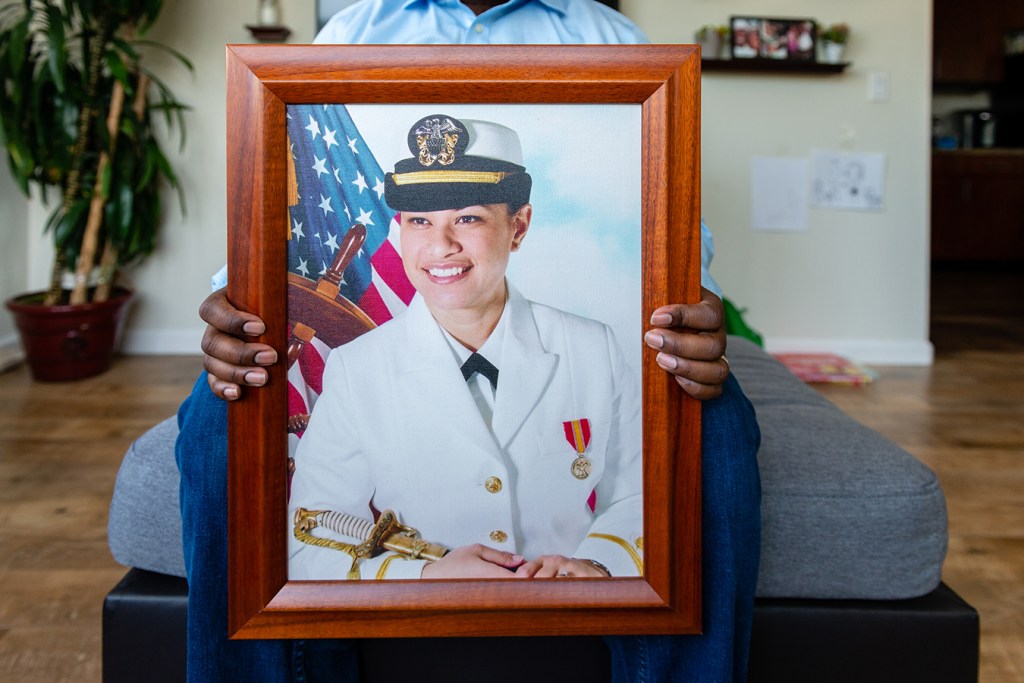The family of a young Navy nurse who died after military doctors allegedly failed to halt massive bleeding following childbirth won’t get a hearing in the nation’s highest court.
The Supreme Court on Monday denied a petition that sought to change what’s known as the Feres doctrine, a long-standing rule that bars active-duty military members from suing the federal government for injuries, including medical malpractice.
The justices declined to discuss the case of Navy Lt. Rebekah “Moani” Daniel, who was 33 in 2014 when she died following a massive postpartum hemorrhage at the Naval Hospital Bremerton, within hours of the birth of her daughter, Victoria.
In court documents, Justice Ruth Bader Ginsburg said she would have granted the petition. Justice Clarence Thomas dissented from the decision, arguing that it was up to the court to reconsider the rule in the absence of a decision by Congress. He noted that the court in recent rulings “twisted traditional tort principles” to allow certain veterans to seek damages for negligence.
“Such unfortunate repercussions — denial of relief to military personnel and distortions of other areas of law to compensate — will continue to ripple through our jurisprudence as long as the Court refuses to reconsider Feres,” he wrote.
Through a lawyer, the nurse’s widower, Walter Daniel, and her daughter, Victoria, now 4, argued that the court should amend the 1950 ruling to allow service members to sue for medical malpractice the same way civilians can.
“Sadly, the justice system remains closed to our family, our colleagues and the families who commit their lives to military service,” Daniel, 39, said in a statement Monday. “Victoria and I won’t have the opportunity to learn what led to Moani’s death, and to ensure others don’t experience the same tragedy.”
Andrew Hoyal, Daniel’s lawyer, said he was “clearly disappointed” at the decision but heartened at the responses from Thomas and Ginsburg.
“We knew from the beginning that this would be a long journey with even longer odds,” he said.
Rebekah Daniel died on March 9, 2014, at the Washington state facility. In a 2015 wrongful death lawsuit, her husband claimed that she died from botched medical care that failed to halt hemorrhaging of nearly a third of the blood in her body.
Daniel, a former Coast Guard officer, disputed the findings of a Navy autopsy that concluded Rebekah Daniel died of “natural” causes possibly linked to a rare, hard-to-prove complication of childbirth.
But that lawsuit and subsequent appeals were dismissed not based on the facts of the case but because of the Feres doctrine, which holds that active-duty members of the military can’t sue under the Federal Tort Claims Act for harm that they incur “incident to service.”
The ruling was last challenged in the high court more than 30 years ago when the justices voted 5-4 to uphold it. That decision drew a scathing dissent from Justice Antonin Scalia, who declared the rule should be scrapped. More recently, Justice Thomas also argued it should be amended.
Since then, however, the court has refused to accept two previous petitions that would have allowed reconsideration. The Daniel request beat the odds. Of the 7,000 to 8,000 cases submitted to the Supreme Court each term, only about 80 are accepted.
Congress has considered amending the Feres rule in the past but stopped short of action. In April, Rep. Jackie Speier (D-Calif.) introduced H.R. 2422, which would allow active-duty service members to sue the government for damages caused by medical malpractice. The bill has been referred to the House judiciary committee.
Daniel said he would continue to work with lawmakers and advocates to change the rule.
“Our case and our fight is over — but it continues for other service members. Moani’s story has generated a groundswell of momentum to correct the injustice of Feres, and now this issue is going all the way to Capitol Hill,” the statement said.







